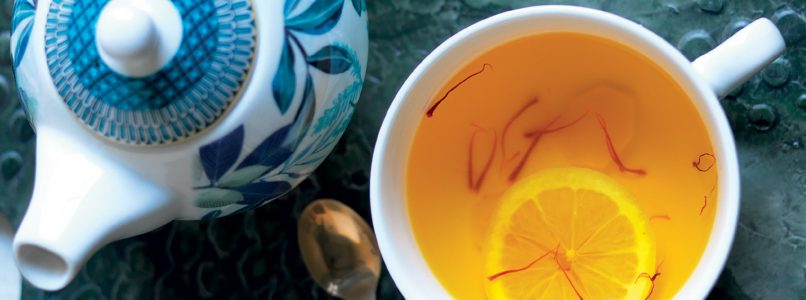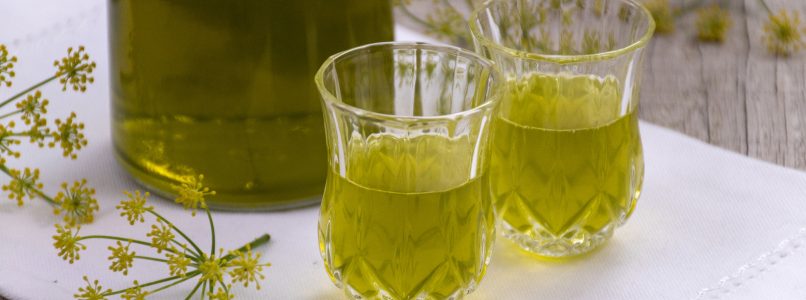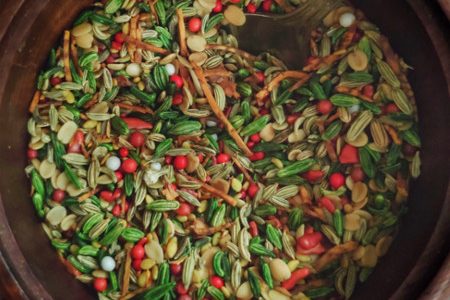There is a liqueur with a fresh taste and the scent of freshly cut grass, which has a super digestive effect.
Not everyone knows it, perhaps because it is prepared with an unusual ingredient which is the wild fennel.
Try to do it at home. It will win you over!
Origins of the fennel liqueur
The fennel liqueur it has very ancient origins and is a typical product of southern Italy, in particular of the Puglia.
This is probably a peasant recipe passed down through generations that is prepared with natural, wild products that grow spontaneously in the fields.
According to other sources, it would have ecclesiastical origins. What is certain is that it is a typical recipe from southern Italy because it is here that the climate is more conducive to the growth of these plants.
How to recognize wild fennel
Wild fennel is a spontaneous plant with highly fragrant flowers.
It has a long, highly branched stem at the top that can reach a height of 2 meters. It is light green in color and has yellow flowers grouped in small piles.
It grows in the hills, but only where the climate is mild, usually near the sea.
To prepare the fennel liqueur the beards, that is, the fennel leaves, collected and then left to dry.
You can also use fresh ones, however, and that's exactly what we suggest you do.
Here is the recipe.
How to make wild fennel liqueur
Ingredients
300 g of wild fennel leaves
700 g of sugar
1 l of 95 ° alcohol
800 ml of water
1 teaspoon fennel seeds
1 untreated lemon
Method
Infuse the alcohol with wild fennel leaves and crushed seeds in a mortar for at least 10 days in an airtight container.
Every two days shake quickly to mix the flavors well.
At the end of the maceration phase, dissolve the sugar in a saucepan with the water until a syrup is obtained. Strain the alcoholic part with a sieve or gauze to remove seeds and leaves and mix everything with the sugar syrup, once cold.
Close everything tightly for about a day.
Bottled in glass bottles and stored for about two to three months.
Variant with flowers
There is also a variant of this liqueur that is prepared with the flowers of the plants of wild fennel and not with leaves.
The aroma and taste are slightly more intense, but the flavor is very similar.
To prepare it, simply replace the leaves with 150-200 g of flowers and stalks of wild fennel.
Liquor storage
Like all alcoholic preparations, fennel liqueur also requires a rest time.
Once ready and bottled, in fact, keep it in a cool and dry place, not necessarily in the refrigerator, and consume it after about two months in order to sediment all the aromas and flavors well.


